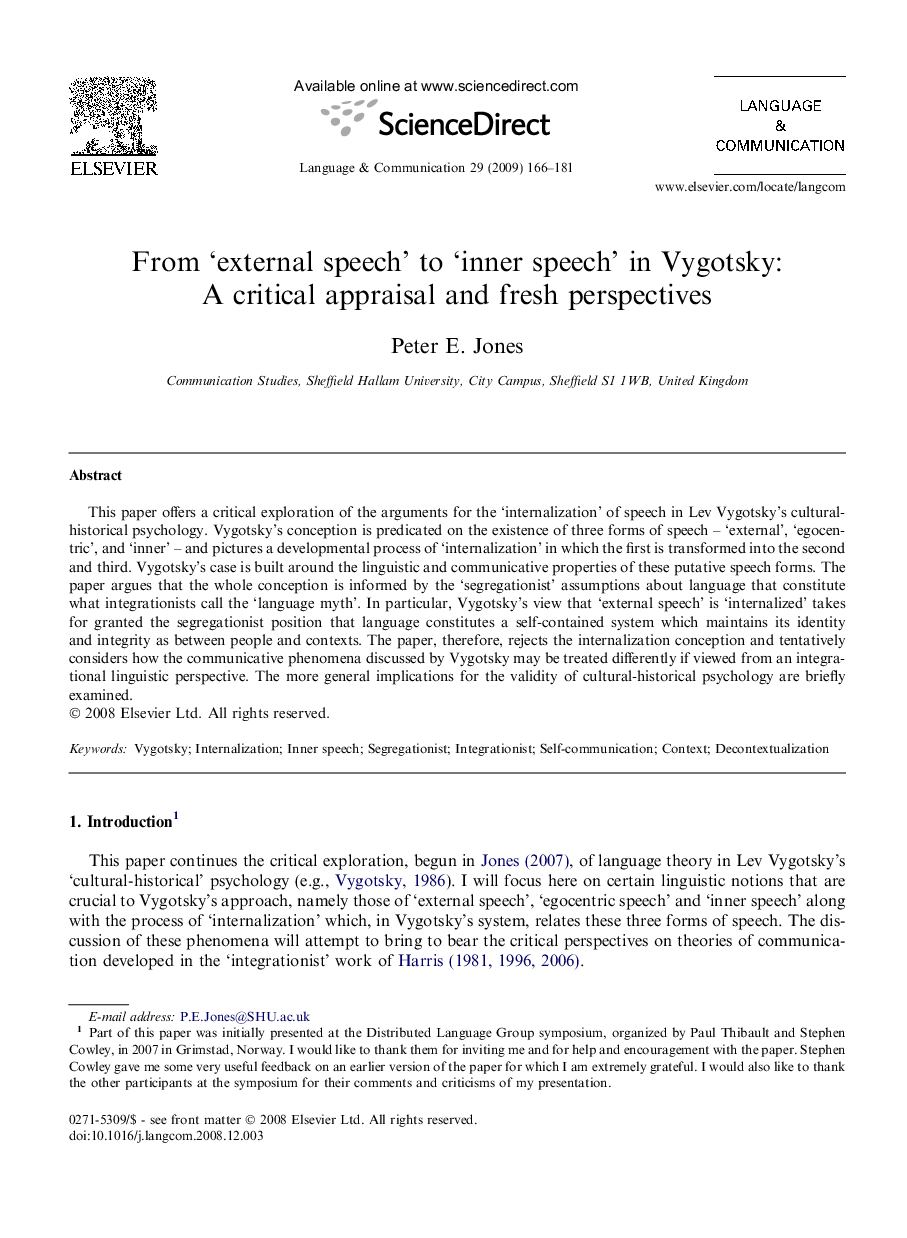| Article ID | Journal | Published Year | Pages | File Type |
|---|---|---|---|---|
| 934894 | Language & Communication | 2009 | 16 Pages |
This paper offers a critical exploration of the arguments for the ‘internalization’ of speech in Lev Vygotsky’s cultural-historical psychology. Vygotsky’s conception is predicated on the existence of three forms of speech – ‘external’, ‘egocentric’, and ‘inner’ – and pictures a developmental process of ‘internalization’ in which the first is transformed into the second and third. Vygotsky’s case is built around the linguistic and communicative properties of these putative speech forms. The paper argues that the whole conception is informed by the ‘segregationist’ assumptions about language that constitute what integrationists call the ‘language myth’. In particular, Vygotsky’s view that ‘external speech’ is ‘internalized’ takes for granted the segregationist position that language constitutes a self-contained system which maintains its identity and integrity as between people and contexts. The paper, therefore, rejects the internalization conception and tentatively considers how the communicative phenomena discussed by Vygotsky may be treated differently if viewed from an integrational linguistic perspective. The more general implications for the validity of cultural-historical psychology are briefly examined.
